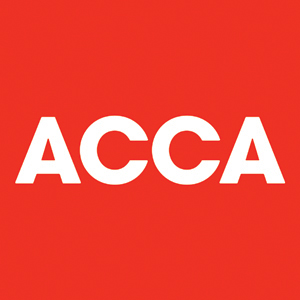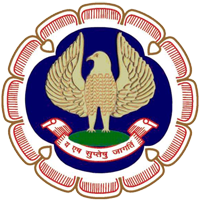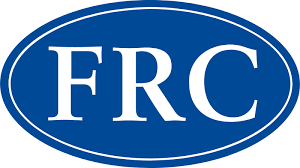
An accountant is a practitioner of accounting or accountancy. Accountants who have demonstrated competency through their professional associations' certification exams are certified to use titles such as Chartered Accountant, Chartered Certified Accountant or Certified Public Accountant. Such professionals are granted certain responsibilities by statute, such as the ability to certify an organization's financial statements, and may be held liable for professional misconduct. Non-qualified accountants may be employed by a qualified accountant, or may work independently without statutory privileges and obligations.

The American Institute of Certified Public Accountants (AICPA) is the national professional organization of Certified Public Accountants (CPAs) in the United States, with more than 418,000 members in 143 countries in business and industry, public practice, government, education, student affiliates and international associates. Founded in 1887, the organization sets ethical standards for the profession and U.S. auditing standards for audits of private companies, non-profit organizations, federal, state and local governments. It also develops and grades the Uniform CPA Examination. The AICPA maintains offices in New York City; Washington, DC; Durham, NC; and Ewing, NJ.

Certified Public Accountant (CPA) is the title of qualified accountants in numerous countries in the English-speaking world. It is generally equivalent to the title of chartered accountant in other English-speaking countries. In the United States, the CPA is a license to provide accounting services to the public. It is awarded by each of the 50 states for practice in that state. Additionally, almost every state has passed mobility laws to allow CPAs from other states to practice in their state. State licensing requirements vary, but the minimum standard requirements include passing the Uniform Certified Public Accountant Examination, 150 semester units of college education, and one year of accounting related experience.

Forensic accounting, forensic accountancy or financial forensics is the specialty practice area of accounting that investigates whether firms engage in financial reporting misconduct. Forensic accountants apply a range of skills and methods to determine whether there has been financial reporting misconduct.

Chartered accountants were the first accountants to form a professional accounting body, initially established in Scotland in 1854. The Edinburgh Society of Accountants (1854), the Glasgow Institute of Accountants and Actuaries (1854) and the Aberdeen Society of Accountants (1867) were each granted a royal charter almost from their inception. The title is an internationally recognised professional designation; the certified public accountant designation is generally equivalent to it. Women were able to become chartered accountants only following the Sex Disqualification (Removal) Act 1919 after which, in 1920, Mary Harris Smith was recognised by the Institute of Chartered Accountants in England and Wales and became the first woman chartered accountant in the world.

Founded in 1904, the Association of Chartered Certified Accountants(ACCA) is the global professional accounting body offering the Chartered Certified Accountant qualification (ACCA). ACCA's headquarters are in London with principal administrative office in Glasgow. ACCA works through a network of over 104 offices and centres in 52 countries - with 323 Approved Learning Partners (ALP) and more than 7,300 Approved Employers worldwide, who provide employee development.

An external auditor performs an audit, in accordance with specific laws or rules, of the financial statements of a company, government entity, other legal entity, or organization, and is independent of the entity being audited. Users of these entities' financial information, such as investors, government agencies, and the general public, rely on the external auditor to present an unbiased and independent audit report.
The South African Institute of Chartered Accountants (SAICA), is a professional accountancy body in South Africa.
The Public Company Accounting Oversight Board (PCAOB) is a nonprofit corporation created by the Sarbanes–Oxley Act of 2002 to oversee the audits of public companies and other issuers in order to protect the interests of investors and further the public interest in the preparation of informative, accurate and independent audit reports. The PCAOB also oversees the audits of broker-dealers, including compliance reports filed pursuant to federal securities laws, to promote investor protection. All PCAOB rules and standards must be approved by the U.S. Securities and Exchange Commission (SEC).

The Institute of Chartered Accountants of India (ICAI) is the national professional accounting body of India. It was established on 1 July 1949 as a statutory body under the Chartered Accountants Act, 1949 enacted by the Parliament to regulate the profession of Financial Accountancy in India. ICAI is the second largest professional Accounting & Finance body in the world in terms of membership and number of students. It recommends the accounting standards to be followed by companies in India to the National Financial Reporting Authority the Public Accounting Oversight Board which supersedes ICAI. ICAI is solely responsible and accountable for setting the Standards on Auditing (SAs) to be followed in the audit of financial statements in India.

The Financial Reporting Council (FRC) is an independent regulator in the UK and Ireland, responsible for regulating auditors, accountants and actuaries, and setting the UK's Corporate Governance and Stewardship Codes. The FRC seeks to promote transparency and integrity in business by aiming its work at investors and others who rely on company reports, audits and high-quality risk management.

The New Zealand Institute of Chartered Accountants (NZICA) was the operating name for the Institute of Chartered Accountants of New Zealand. The Institute represented over 33,000 members in New Zealand and overseas. Most accountants in New Zealand belonged to the institute.
British qualified accountants are full voting members of United Kingdom professional bodies that evaluate individual experience and test competencies for accountants.
Institute of Chartered Accountants of Pakistan (ICAP) is a professional accountancy body in Pakistan. As of December 2018, it has 9989 members working in and outside Pakistan. The institute was established on July 1, 1961 to regulate the profession of accountancy in Pakistan. It is a statutory autonomous body established under the Chartered Accountants Ordinance 1961. With the significant growth in the profession, the CA Ordinance and Bye-Laws were revised in 1983.
In the United States, the Auditing Standards Board (ASB) is the senior technical committee designated by the American Institute of Certified Public Accountants (AICPA) to issue auditing, attestation, and quality control statements, standards and guidance to certified public accountants (CPAs) for non-public company audits. Created in October 1978, it is composed of 19 members representing various industries and sectors, including public accountants and private, educational, and governmental entities. It issues pronouncements in the form of statements, interpretations, and guidelines, which all CPAs must adhere to when performing audits and attestations.
Accounting ethics is primarily a field of applied ethics and is part of business ethics and human ethics, the study of moral values and judgments as they apply to accountancy. It is an example of professional ethics. Accounting was introduced by Luca Pacioli, and later expanded by government groups, professional organizations, and independent companies. Ethics are taught in accounting courses at higher education institutions as well as by companies training accountants and auditors.
The Association of International Accountants (AIA) is a professional accountancy body. It was founded in the UK in 1928 and since that date has promoted the concept of ‘international accounting’ to create a global network of accountants in over 85 countries worldwide.
Beth A. Wood is an American politician and accountant serving as the 17th Auditor of North Carolina.

Statutory auditor is a title used in various countries to refer to a person or entity with an auditing role, whose appointment is mandated by the terms of a statute.

Chartered Professional Accountant is the professional designation which united the three Canadian accounting designations that previously existed:








